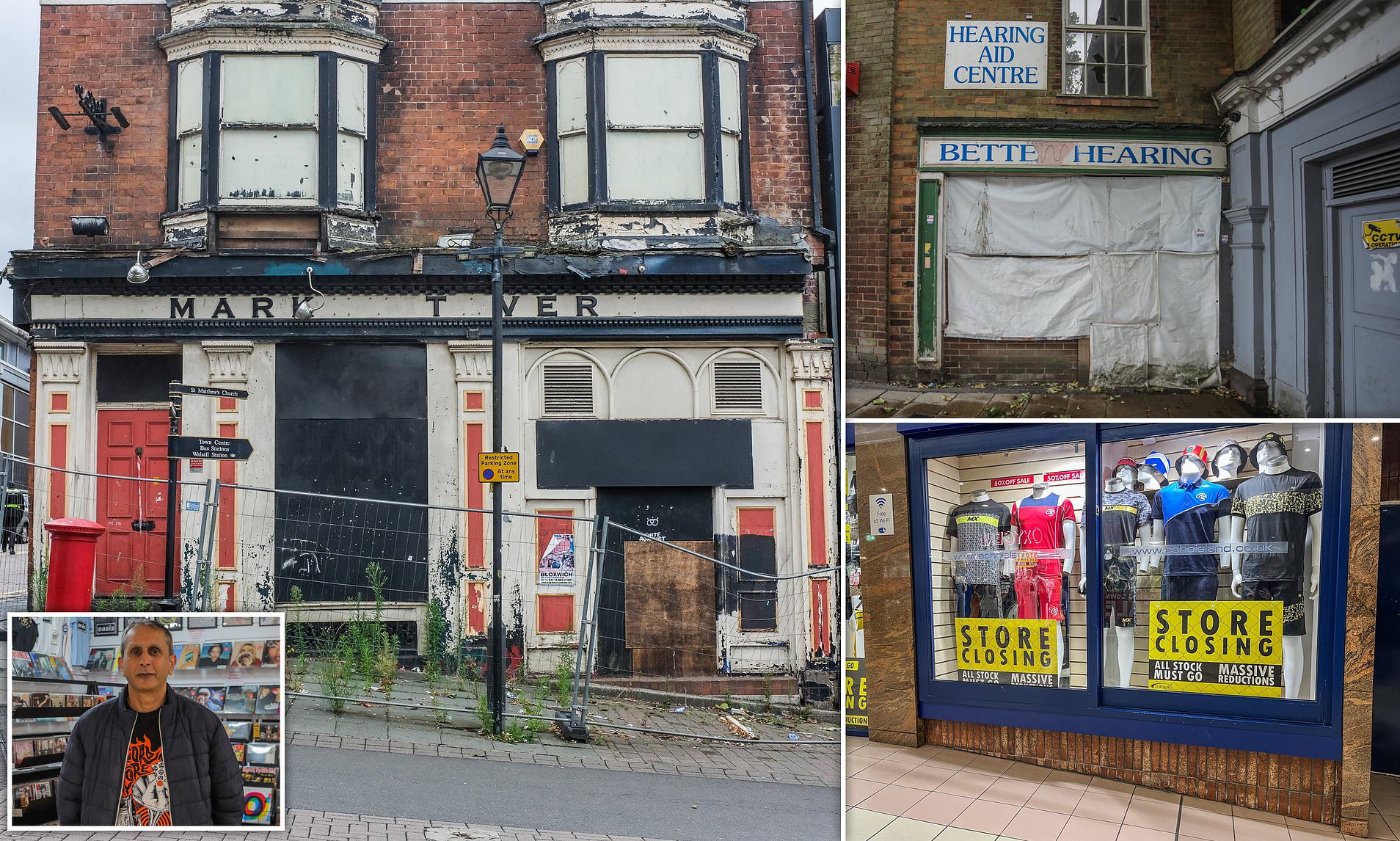
The Decline of a Once-Thriving High Street
Once a bustling hub of commerce and community, the high street in Walsall has seen a dramatic decline. Families living in the area describe it as a "dying ghost town" after more than 40 shops closed their doors. This transformation has left many residents feeling disheartened and uncertain about the future of their local shopping district.
Walsall was once known for its role in the UK's leather and saddle trade. It later evolved into a retail destination with a mix of trendy independent stores and well-known chains. However, recent photographs reveal a stark contrast—many businesses are now boarded up, with smashed windows and graffiti covering the walls. The town has also been ranked among the lowest-rated areas in England for starting a business, and it previously had one of the worst rates of empty shops in the country.
Residents admit they fear for the future of this once-thriving shopping hub. They speak of a loss of community spirit, with no longer any sense of connection between people and their local environment. Store owners, in particular, struggle to make ends meet, citing a lack of support to revive the post-industrial town.
Harcharan Pala, who runs music store Revolution Records, has witnessed the changes firsthand. He has been in the business for eight or nine years and has seen major retailers like Debenhams and M&S disappear from the area. He notes that the town is now desolate, with very few people coming to shop. In the past, Walsall was a destination where people would go out of their way to visit, but that is no longer the case.
Without those big anchor shops drawing customers, there's little reason for people to shop in the town anymore. Many opt to go to larger cities like Birmingham or Wolverhampton, or even to out-of-town retail parks. Pala is considering moving his business online due to declining foot traffic. However, he points out that high rents and rates make it difficult for small business owners to stay afloat. He believes that if these costs were reduced, it could help bring people back to the town.
The situation has affected the indoor market as well, where the number of traders has dropped significantly. Pala mentions that the town has turned into a place dominated by pound shops and charity shops, which does not reflect its former vibrancy.
Paul Booth, a window cleaner who has worked in the town for 44 years, describes Walsall as "dead." He used to work six days a week, but now he can complete his rounds in just a day. New data shows that Walsall is below average on nearly every economic metric, with almost one in four residents economically inactive. There are around 150 shops across the town’s four main shopping streets, meaning approximately one in four are currently empty.
Booth adds that he no longer recognizes the town. He recalls a time when everyone knew each other, but now there is a noticeable absence of community. He points to the rise of cheap and tacky shops selling items like plastic toys and mobile phone covers, which he finds disappointing.
Despite the challenges, some individuals are still trying to make a difference. Damian Chapman, 30, is opening a trading card game store in the town. He says he was drawn to the area because it is where he grew up. Although he noticed the negativity surrounding the town center, he believes there is still a demand for unique, niche businesses. His plan includes turning an upstairs space into a community area for young people during school holidays.
However, not everyone shares his optimism. Jonathan Lovell, 42, feels that Walsall has lost its charm. He recalls a vibrant nightlife and a thriving market, but now the town feels depressingly dead. He mentions safety concerns and the presence of litter on his doorstep, which he finds grim.
Tom Ironside, director of business and regulation at the British Retail Consortium, highlights the issue of vacant properties across the country. He emphasizes the importance of local initiatives to rejuvenate town centers while calling for broader government reforms to support their transformation. He argues that the current business rates system has deterred investment and contributed to store closures.
Walsall Council is working on a £1.5bn regeneration program aimed at creating new opportunities for businesses. Councillor Adrian Andrew, deputy leader of the local authority, acknowledges the challenges faced by the economy and the changing shopping habits of consumers. He emphasizes the need for the town to diversify and create an environment that attracts people to the town center, encouraging them to support local businesses.
